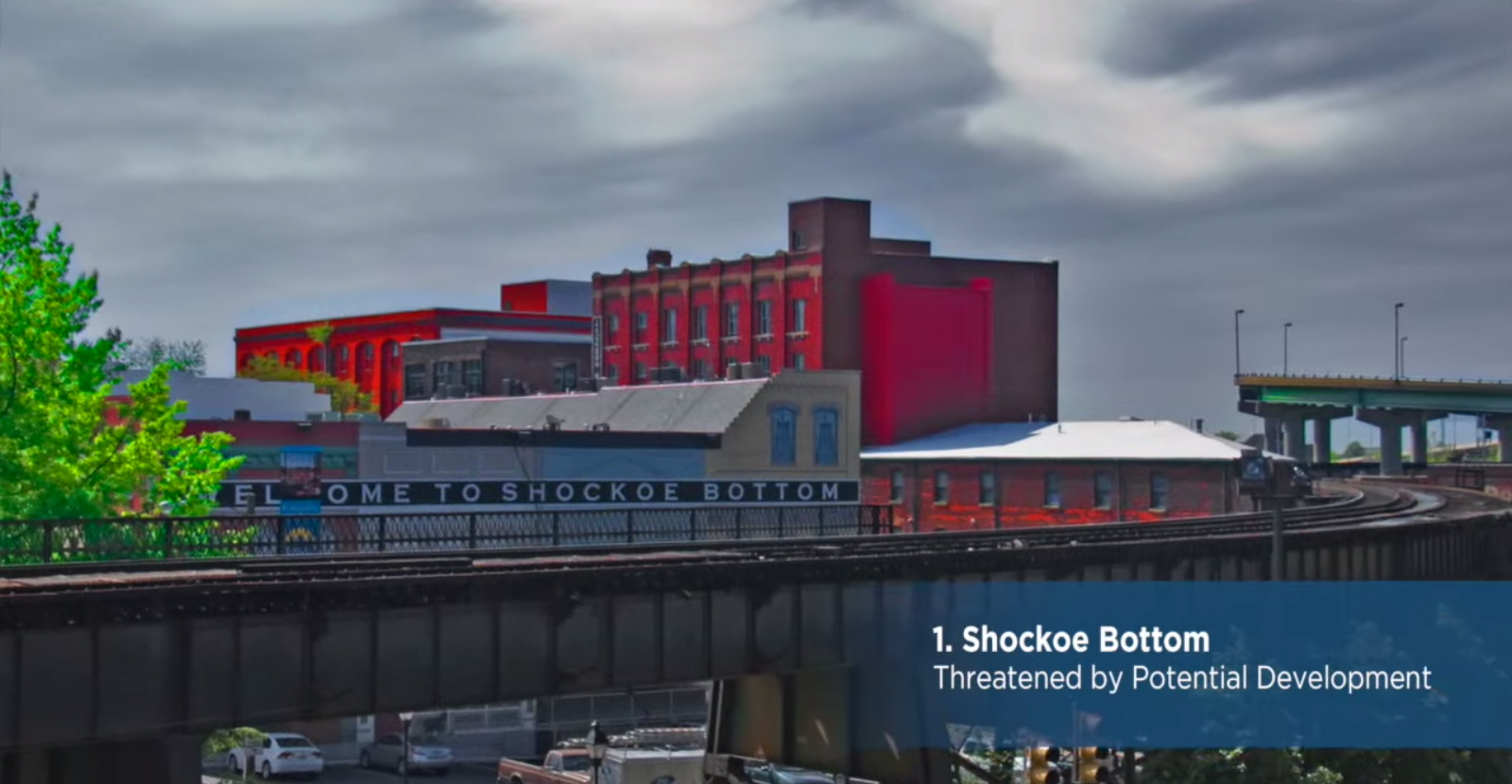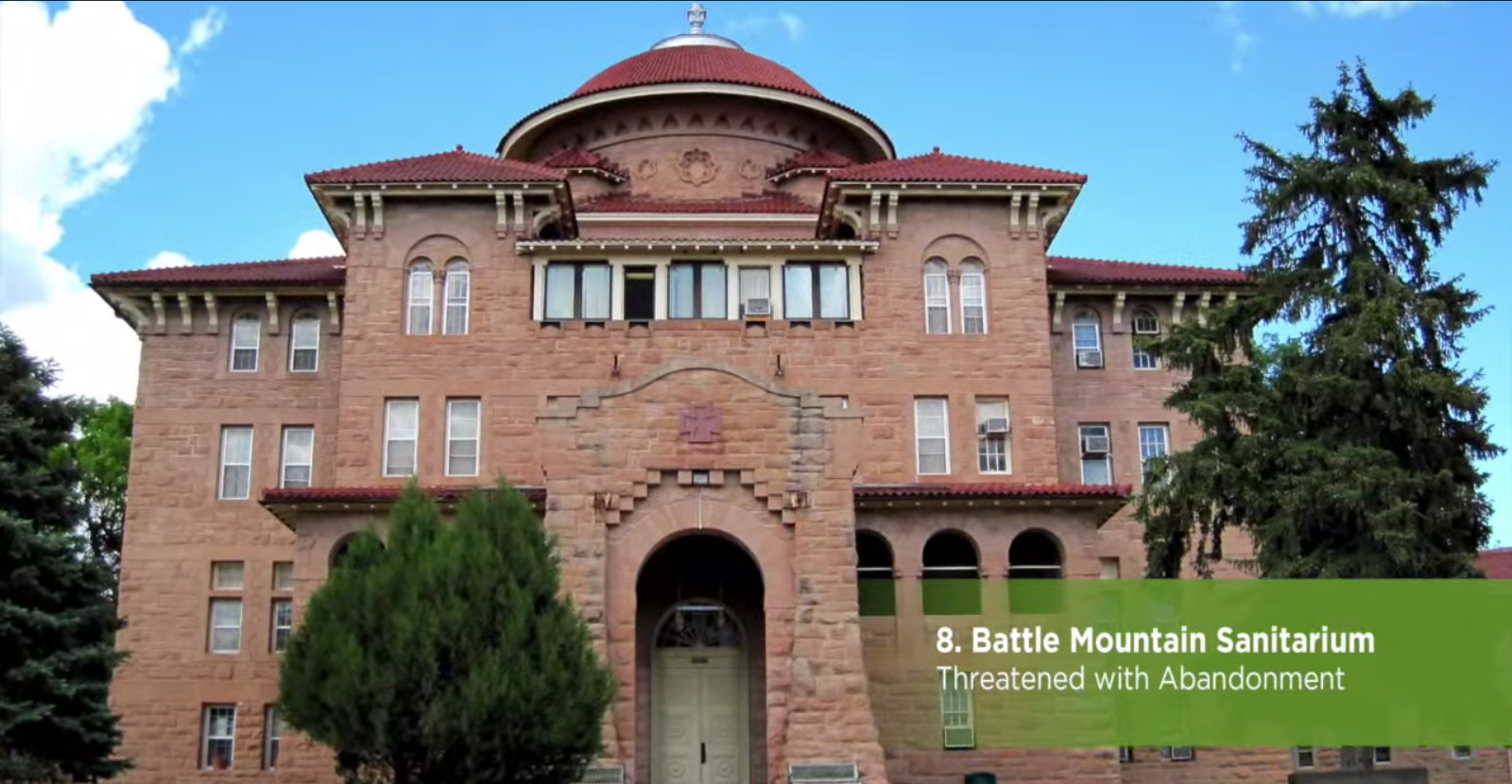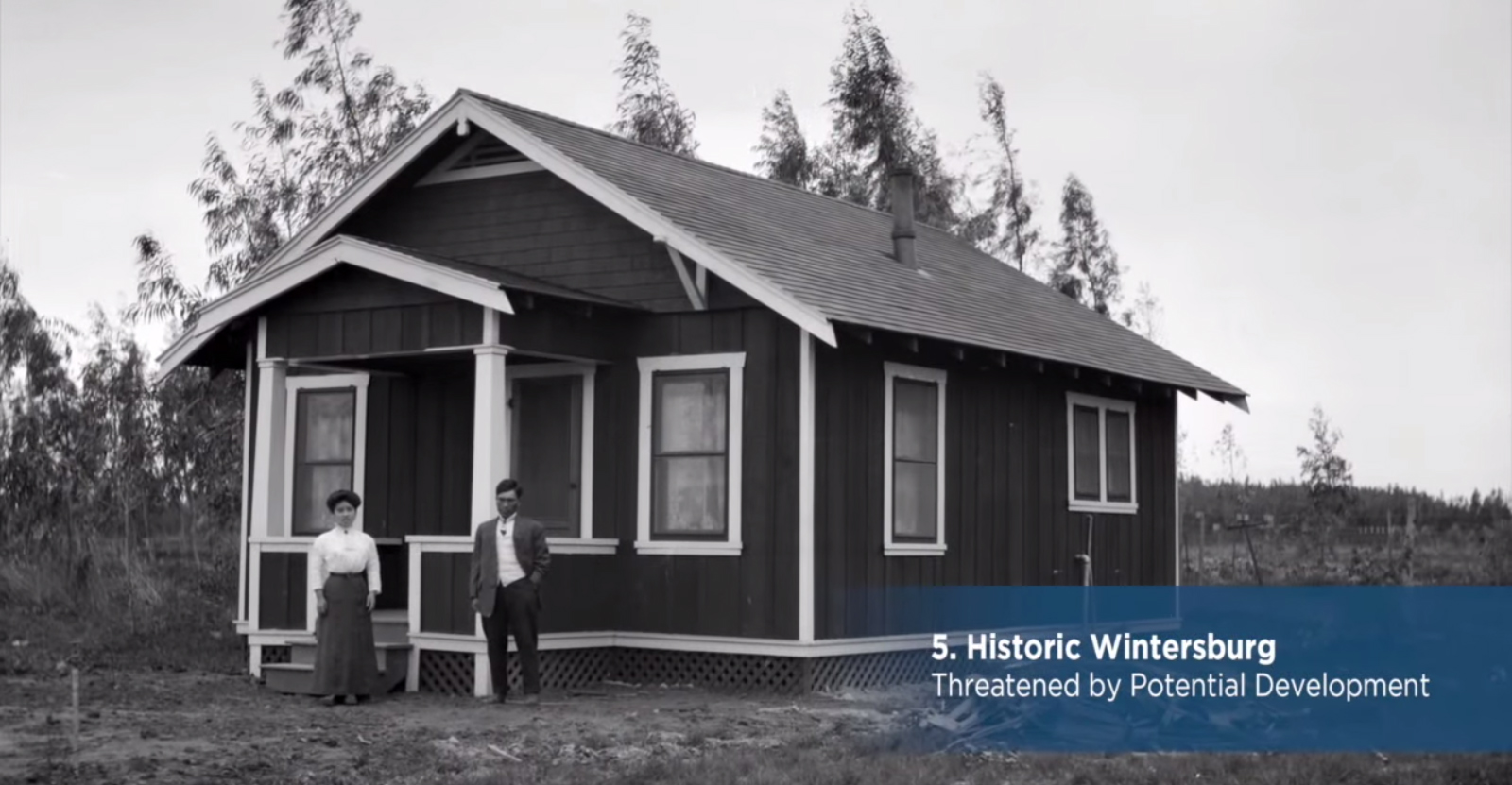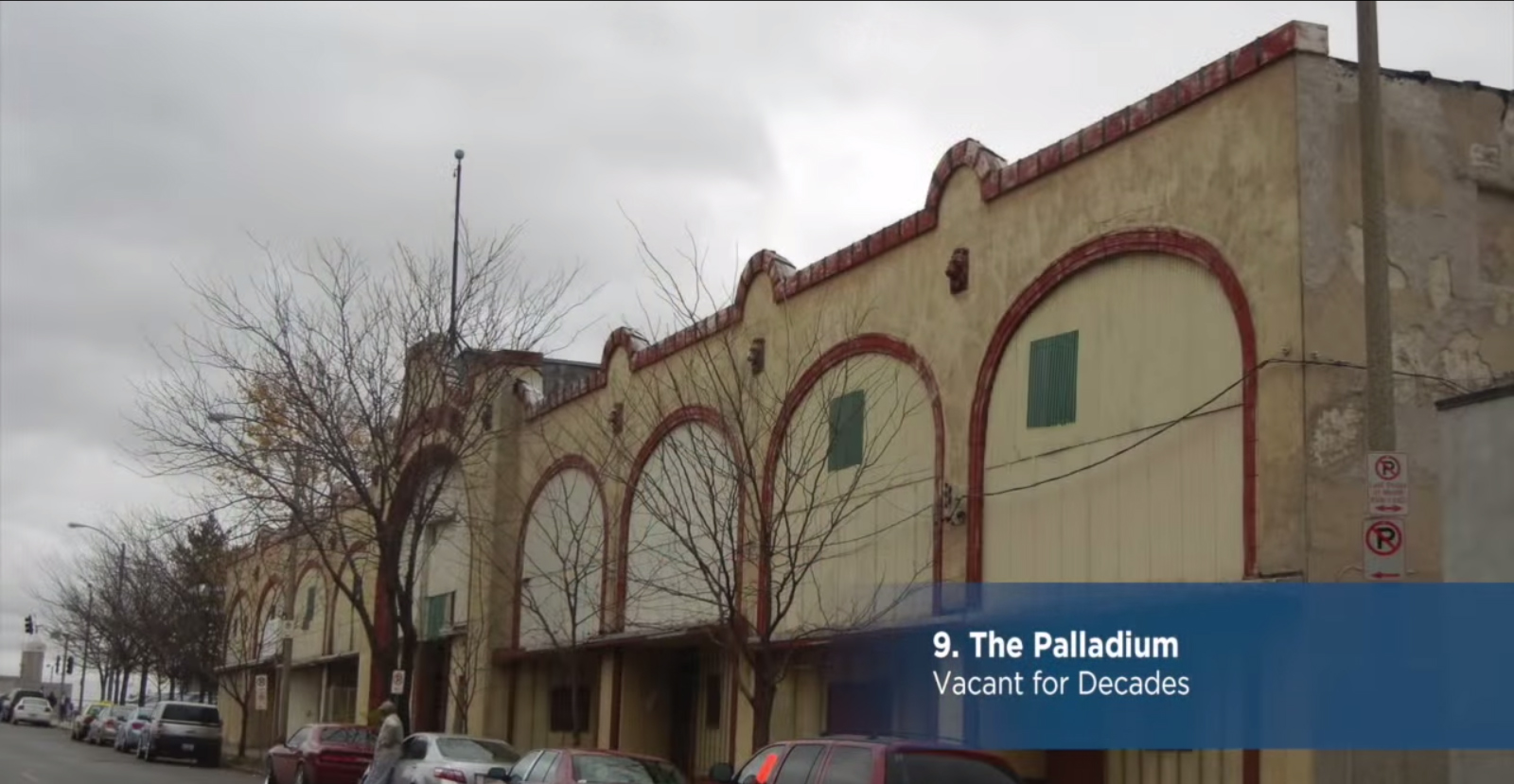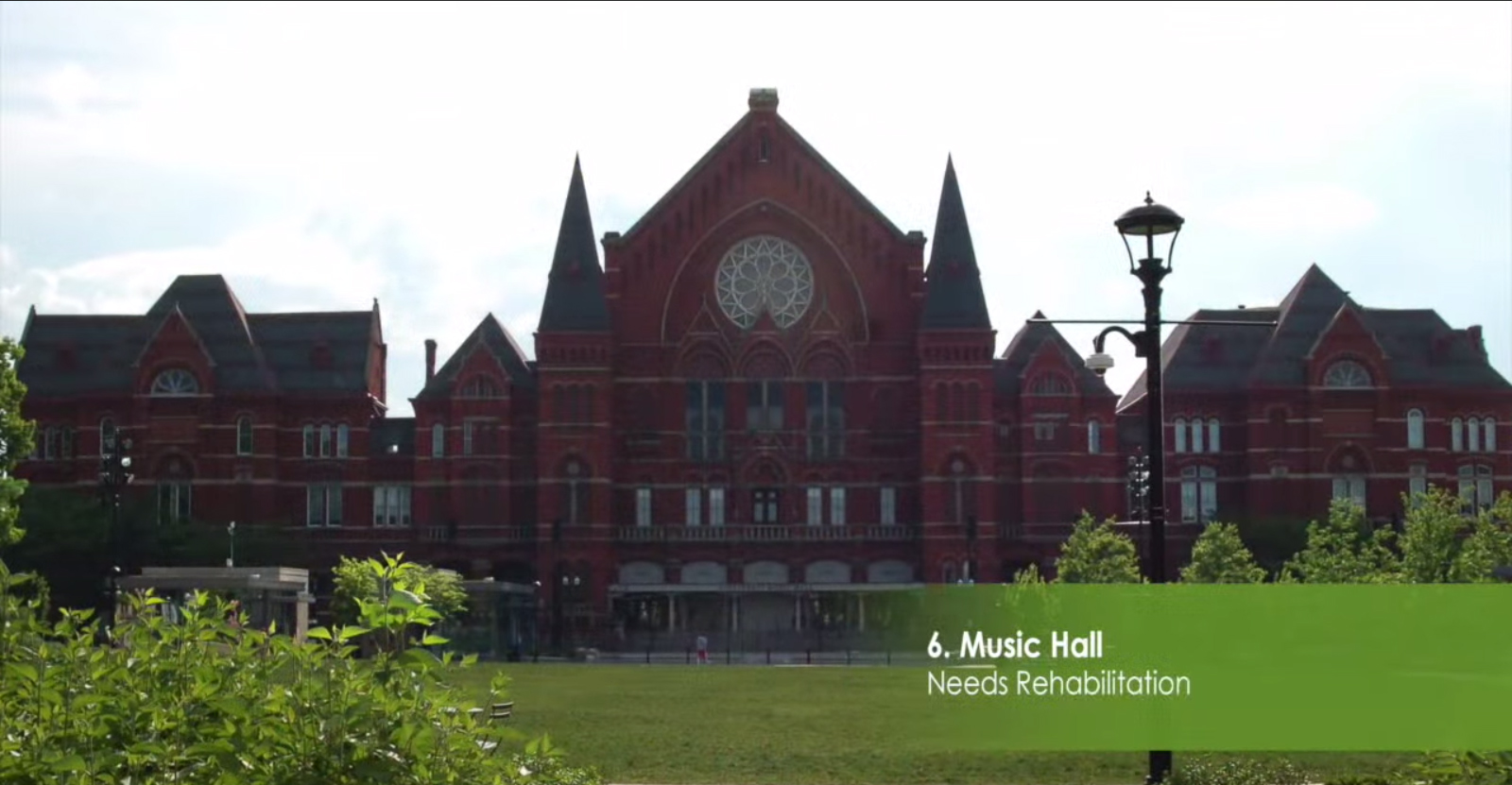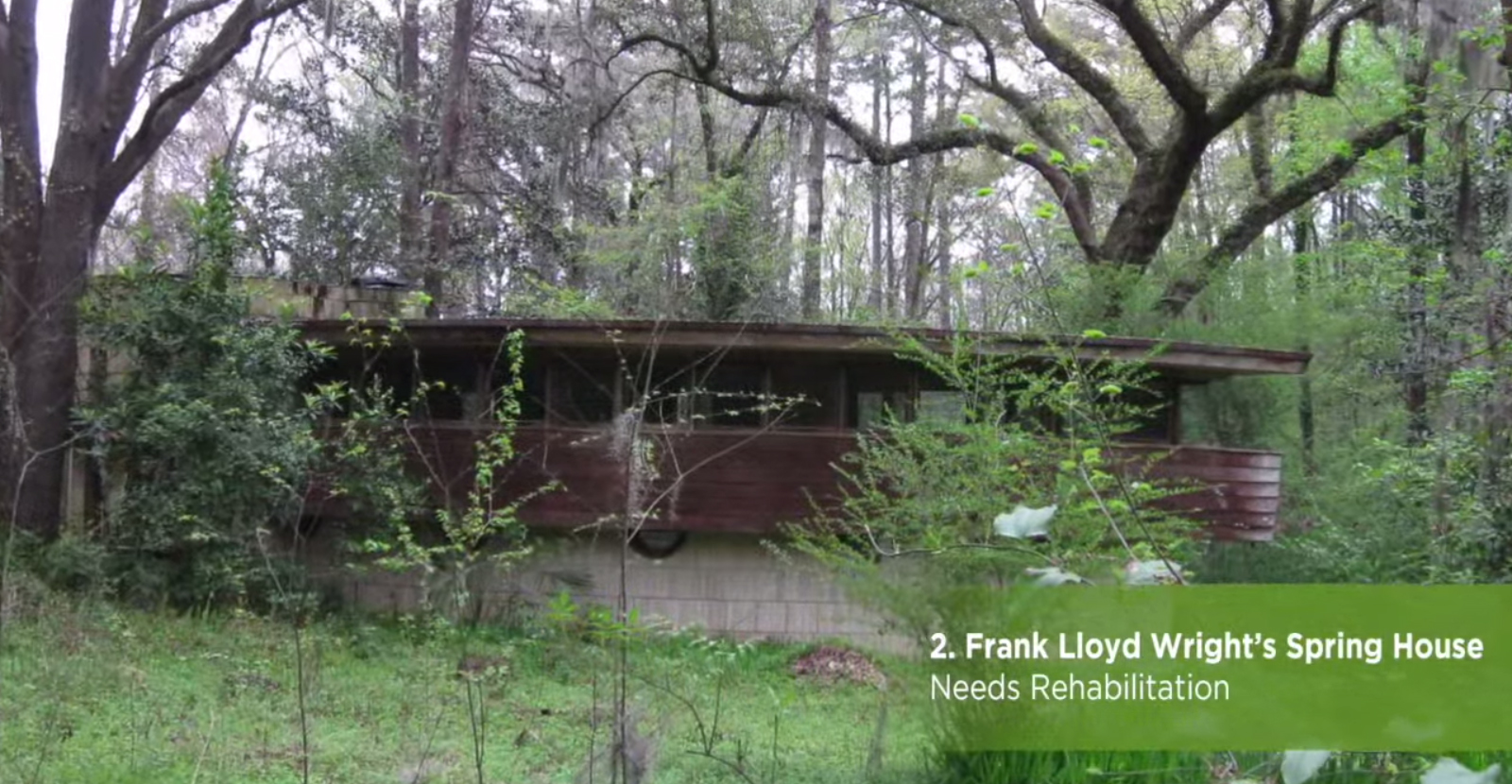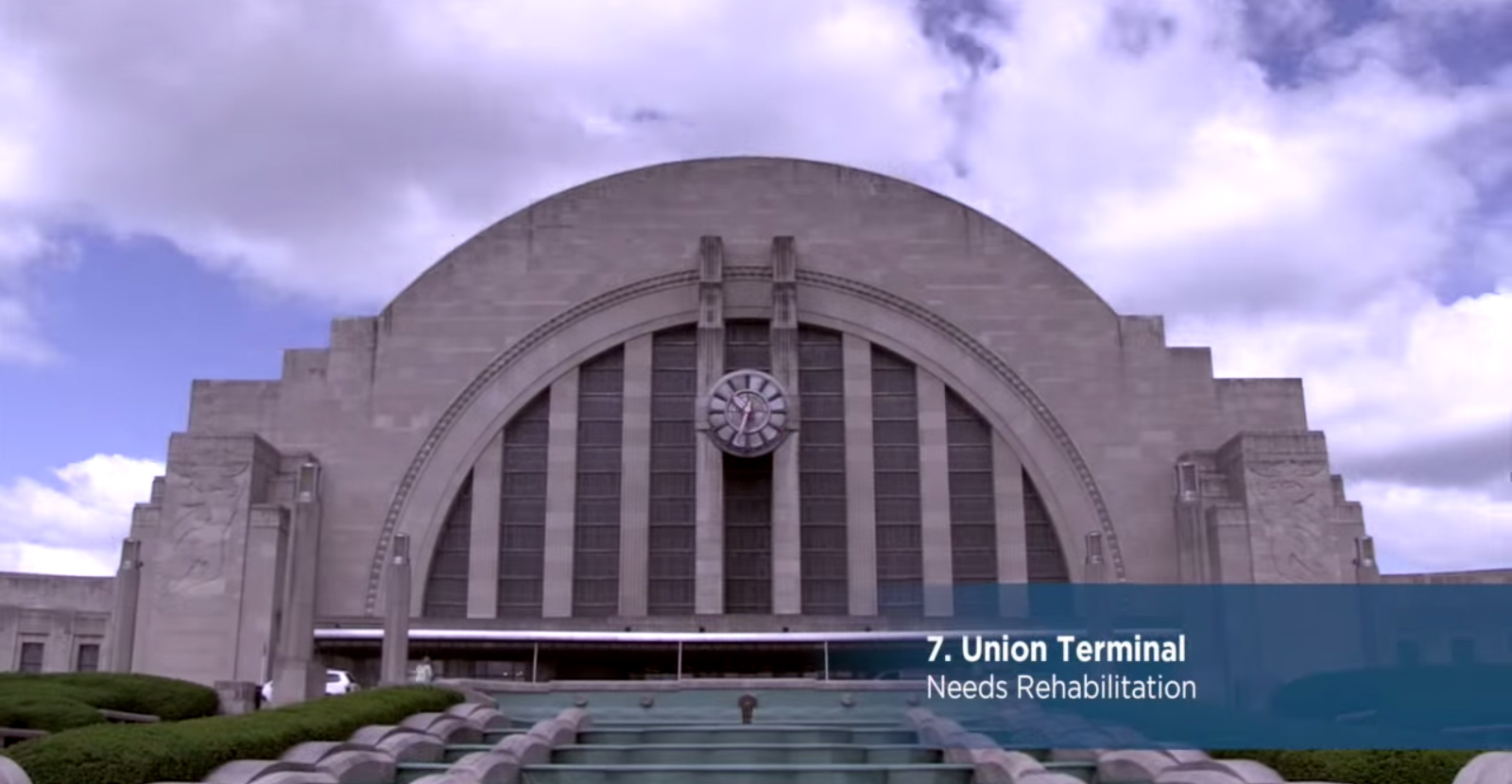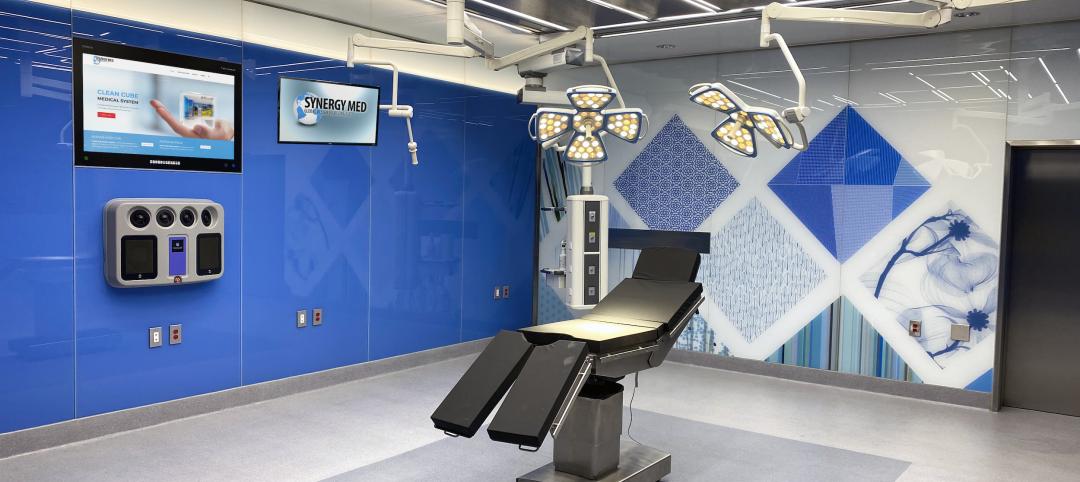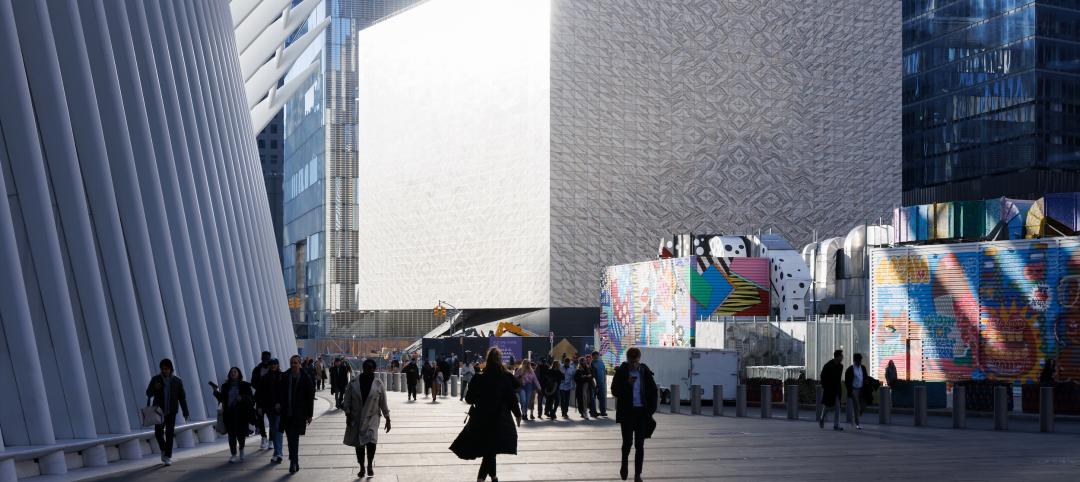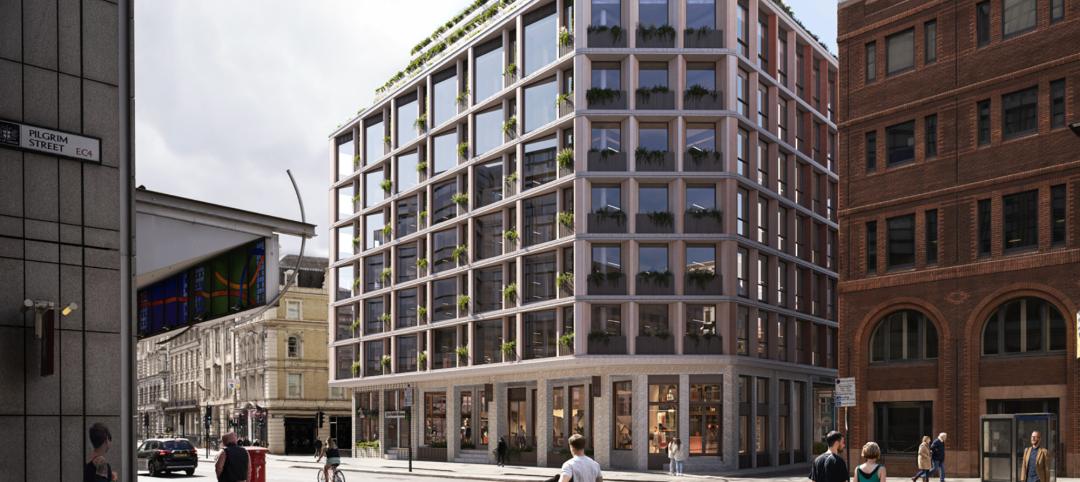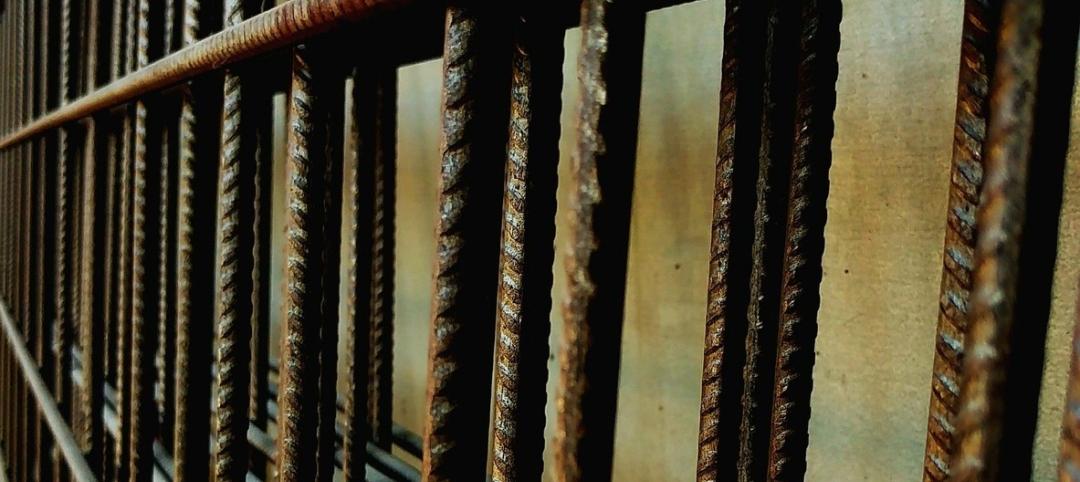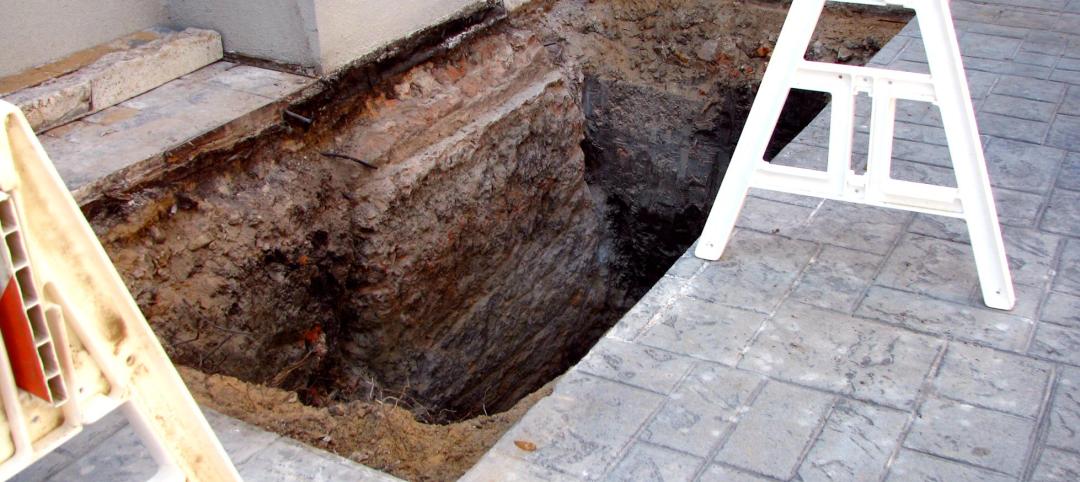See them before you miss them. Or better: take action. For 26 years, the Trust for Historic Preservation has compiled a list of America’s 11 Most Endangered Historic Places as an effort to raise awareness about the threats facing the nation’s greatest treasures of architectural, cultural and natural significance.
This year’s list has a little bit for everyone. From natural landmarks like the Palisades, to grandeur structures like Cincinnati’s Music Hall or simple yet culturally revolutionary architecture like Frank Lloyd Wright’s Spring House, a variety of sites across the United States are threatened by weather damage, natural disaster or pressure for development.
On the brighter side, the National Trust says that thanks to these lists that come out annually, hearts have been touched and communities have been mobilized. Hence, out of the 250 sites listed as endangered, only a handful have been lost.
Here’s a closer look on eight of the sites that made this year’s list in no particular order:
1. Shockoe Bottom, Richmond, Virginia
This site may not look like much, but that’s because the antebellum artifacts are now below the surface. Shockoe Bottom was an important center for the African slave trade between 1830 and 1865, where 350,000 slaves were traded. Among these slaves were Solomon Northup, whose life was chronicled in the Oscars Best Picture winning “12 Years as Slave.” The site is now threatened by plans to build a minor league baseball stadium on it.
The National Trust says: “Shockoe Bottom should be protected as a site of conscience, a place that offers the public a chance to experience, and learn from, this dark chapter in American history. A path forward for Shockoe Bottom should include meaningful public involvement and expert archeological analysis so that the historical remnants of the slave trade now buried there can be seen and properly interpreted.”
2. The Palisades, Englewood Cliffs, New Jersey
Preserving the Palisades is more than preserving a pretty landscape; these cliffs on the Hudson River represent two historically significant stories to the United States. For centuries, the Sanhikan, Hackensack, Raritan and Tappan nations used the cliffs as shelter to protect their people from adverse weather. In the 19th century, the Palisades became the focus of some of the country’s earliest conservation and protection efforts.
A proposal to build an eight story, 143 foot office next to the Palisades would change the scenic view of the Palisades. According to the National Trust, “if construction goes forward, it would represent the first breach of the viewshed in the 100-year history of protecting the Palisades north of the George Washington Bridge.”
3. Battle Mountain Sanitarium, Hot Springs, South Dakota
For over a century Battle Mountain Sanitarium has provided medical care to veterans in the region. It is one of a few properties managed by the U.S. Department of Veterans Affairs (VA) designated as a National Historic Landmark. The facilities are threatened to an uncertain fate as the VA plans to relocate to Rapid City, 60 miles away.
4. Historic Wintersburg, Huntington Beach, California
Underneath the mythical appeal of the Wild West as preserved by Hollywood Western films is a less-known story of California’s diverse settlement since the 19th century. Wintersburg documents three generations of the Japanese-American experience in the United States, and contains six extant pioneer structures and open farmland.
Although the current owners of the property agreed to provide preservationists until mid 2015 to find solutions to save the historic property, demolition of the site remains a possibility.
5. Palladium Building, St. Louis, Missouri
At first glance, this long-neglected and dilapidated building does not look like much. Reality is the Palladium was the largest club of its kind in St. Louis in the 1940s, and pioneers in African American jazz music such as Nat King Cole and Ella Fitzgerald have graced its stage.
6. Music Hall, Cincinnati, Ohio
Built in 1878, the red brick High Victorian Gothic structure features a large auditorium, ornate foyer, offices, carpentry shop, rehearsal rooms, dressing rooms and a ballroom. But despite its grandeur, Music Hall is suffering from deterioration and water damage and is in need of extensive repairs.
7. Frank Lloyd Wright’s Spring House, Tallahassee, Florida
According to the National Trust, the novel hemicycle form “represents a late, and little known, stage in Wright’s long, prolific career.” Constructed in 1954, Spring House is the only built private residence designed by Wright in the state of Florida.
Exposure to hurricanes and winds storms has led to visible damage throughout the interior of the house. Despite the unique design and its association with America’s most famous architect, funds still need to be raised to purchase and restore the house.
8. Union Terminal, Cincinnati, Ohio
The iconic building is one of the country’s last remaining grand-scale Art Deco railroad terminals The massive 180 foot wide and 106 foot tall rotunda is the second largest half dome in the world, and features glass mosaic murals by Winold Reiss depicting the history of Cincinnati and the United States.
The grandeur scale of the structure means restoration costs are hefty, and the station is threatened by deterioration.
To learn more about each site and see the extensive list of endangered landmarks, visit the National Trust’s official page.
Related Stories
Healthcare Facilities | Jul 19, 2023
World’s first prefab operating room with fully automated disinfection technology opens in New York
The first prefabricated operating room in the world with fully automated disinfection technology opened recently at the University of Rochester Medicine Orthopedics Surgery Center in Henrietta, N.Y. The facility, developed in a former Sears store, features a system designed by Synergy Med, called Clean Cube, that had never been applied to an operating space before. The components of the Clean Cube operating room were custom premanufactured and then shipped to the site to be assembled.
Performing Arts Centers | Jul 18, 2023
Perelman Performing Arts Center will soon open at Ground Zero
In September, New York City will open a new performing arts center in Lower Manhattan, two decades after the master plan for Ground Zero called for a cultural component there. At a cost of $500 million, including $130 million donated by former mayor Michael R. Bloomberg, the Perelman Performing Arts Center (dubbed PAC NYC) is a 138-foot-tall cube-shaped building that glows at night.
Codes and Standards | Jul 17, 2023
Outdated federal rainfall analysis impacting infrastructure projects, flood insurance
Severe rainstorms, sometimes described as “atmospheric rivers” or “torrential thunderstorms,” are making the concept of a “1-in-100-year flood event” obsolete, according to a report from First Street Foundation, an organization focused on weather risk research.
Multifamily Housing | Jul 13, 2023
Walkable neighborhoods encourage stronger sense of community
Adults who live in walkable neighborhoods are more likely to interact with their neighbors and have a stronger sense of community than people who live in car-dependent communities, according to a report by the Herbert Wertheim School of Public Health and Human Longevity Science at University of California San Diego.
Sustainability | Jul 13, 2023
Deep green retrofits: Updating old buildings to new sustainability standards
HOK’s David Weatherhead and Atenor’s Eoin Conroy discuss the challenges and opportunities of refurbishing old buildings to meet modern-day sustainability standards.
Contractors | Jul 13, 2023
Construction input prices remain unchanged in June, inflation slowing
Construction input prices remained unchanged in June compared to the previous month, according to an Associated Builders and Contractors analysis of U.S. Bureau of Labor Statistics Producer Price Index data released today. Nonresidential construction input prices were also unchanged for the month.
Government Buildings | Jul 13, 2023
The recently opened U.S. Embassy in Ankara reflects U.S. values while honoring Turkish architecture
The U.S. Department of State’s Bureau of Overseas Buildings Operations (OBO) has recently opened the U.S. Embassy in Ankara, Turkey. The design by Ennead Architects aims to balance transparency and openness with security, according to a press statement. The design also seeks both to honor Turkey’s architectural traditions and to meet OBO’s goals of sustainability, resiliency, and stewardship.
Affordable Housing | Jul 12, 2023
Navigating homelessness with modular building solutions
San Francisco-based architect Chuck Bloszies, FAIA, SE, LEED AP, discusses his firm's designs for Navigation Centers, temporary housing for the homeless in northern California.
Sponsored | Fire and Life Safety | Jul 12, 2023
Fire safety considerations for cantilevered buildings [AIA course]
Bold cantilevered designs are prevalent today, as developers and architects strive to maximize space, views, and natural light in buildings. Cantilevered structures, however, present a host of challenges for building teams, according to José R. Rivera, PE, Associate Principal and Director of Plumbing and Fire Protection with Lilker.
Building Owners | Jul 12, 2023
Building movement: When is it a problem?
As buildings age, their structural conditions can deteriorate, causing damage and safety concerns. In order to mitigate this, it’s important to engage in the regular inspection and condition assessment of buildings for diagnosis.



